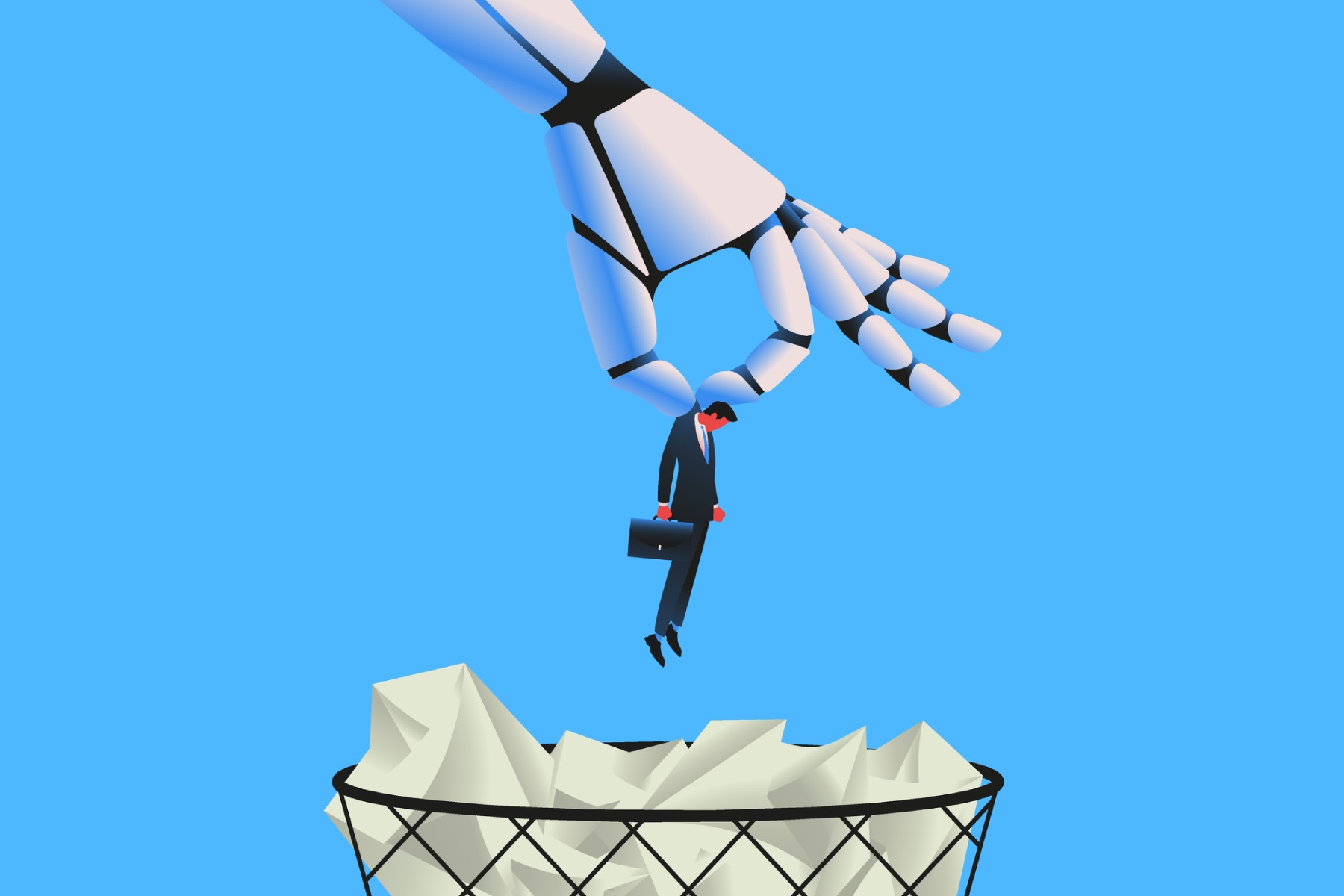Technology
AI’s Impact on Jobs: Transforming the Workforce Landscape

The emergence of artificial intelligence (AI) technologies is reshaping the job market, prompting significant concerns about the future of work. As automation becomes increasingly capable of performing tasks traditionally reserved for humans, many are left wondering: will AI take our jobs? The consensus among experts is shifting toward a recognition that AI will have a profound impact on employment across various sectors.
Research from Oxford University in 2013 predicted that approximately 47 percent of jobs in the United States could be at risk of automation. While this estimate was met with skepticism at the time, recent advancements in AI technology suggest that the threat of widespread job displacement is more pressing than previously thought. AI is now being employed in diverse fields such as manufacturing, healthcare, and even the arts, indicating its far-reaching influence.
As AI systems advance, jobs that once seemed secure may no longer be safe. Roles that require creativity or complex cognitive skills are increasingly susceptible to automation. This change affects not only blue-collar positions but also white-collar jobs, leaving many workers grappling with the reality that their specialized skills can be replicated by machines. The emotional and financial toll of such transitions cannot be understated, as individuals may find years of investment in education and training rendered obsolete almost overnight.
Potential Paths Forward Amid Uncertainty
Despite the looming threat of job loss due to automation, some companies may choose to adapt by retraining their workforce rather than resorting to layoffs. This approach could mitigate the immediate economic fallout associated with mass unemployment. However, the decision to invest in employee retraining is not guaranteed and may vary significantly across industries.
Economic consequences of job displacement extend beyond individuals. If automation leads to mass unemployment, the purchasing power of consumers diminishes, raising concerns about the sustainability of businesses that rely on consumer spending. The potential for a financial recession further complicates the landscape, as companies might prioritize automation over rehiring laid-off workers when economic conditions improve.
The argument often presented against fears of job loss due to automation hinges on the idea that new jobs will naturally arise to replace those that are eliminated. While history suggests that innovation can create new opportunities, the speed and scale of AI’s integration into the workforce present unique challenges. Unlike past technological advancements, AI serves as a general-purpose technology, affecting multiple industries simultaneously and complicating the equation of job creation.
Facing the Reality of Job Displacement
As AI continues to evolve, the skills required in the job market are also changing. Many individuals who have invested in acquiring specialized knowledge may find themselves at a disadvantage when their expertise is no longer needed. This shift raises significant questions about the relevance of current educational frameworks, particularly in professional fields where automation is rapidly advancing.
The potential skills gap could result in economic and social issues, as workers struggle to transition to new roles that may require different competencies. Those who have diligently built their careers may feel disillusioned, especially when faced with the prospect of starting over in low-skilled positions. This sense of betrayal could lead to broader societal unrest and mental health challenges.
The implications of AI on employment are not confined to individuals; they also affect families and communities. Economic hardship can create a ripple effect, impacting social structures and overall well-being. As David Eliot, author of “Artificially Intelligent: The Very Human Story of AI,” emphasizes, the way we navigate this transition will shape our collective future.
In navigating the uncharted territory of AI and automation, society faces a critical choice: will we prioritize human dignity and equitable distribution of technological benefits, or will we repeat the mistakes of the past? As history shows, the decisions we make today will determine the role of technology in our lives and the values that guide us.
Ultimately, the future of work is not predetermined. As we stand at the crossroads of this transformative era, it is imperative to engage in thoughtful discussions about the implications of AI and to advocate for policies that ensure technology serves humanity rather than the other way around.
-

 Science3 months ago
Science3 months agoToyoake City Proposes Daily Two-Hour Smartphone Use Limit
-

 Top Stories3 months ago
Top Stories3 months agoPedestrian Fatally Injured in Esquimalt Collision on August 14
-

 Health3 months ago
Health3 months agoB.C. Review Reveals Urgent Need for Rare-Disease Drug Reforms
-

 Technology3 months ago
Technology3 months agoDark Adventure Game “Bye Sweet Carole” Set for October Release
-

 World3 months ago
World3 months agoJimmy Lai’s Defense Challenges Charges Under National Security Law
-

 Lifestyle3 months ago
Lifestyle3 months agoVictoria’s Pop-Up Shop Shines Light on B.C.’s Wolf Cull
-

 Technology3 months ago
Technology3 months agoKonami Revives Iconic Metal Gear Solid Delta Ahead of Release
-

 Technology3 months ago
Technology3 months agoApple Expands Self-Service Repair Program to Canada
-

 Technology3 months ago
Technology3 months agoSnapmaker U1 Color 3D Printer Redefines Speed and Sustainability
-

 Technology3 months ago
Technology3 months agoAION Folding Knife: Redefining EDC Design with Premium Materials
-

 Business3 months ago
Business3 months agoGordon Murray Automotive Unveils S1 LM and Le Mans GTR at Monterey
-

 Technology3 months ago
Technology3 months agoSolve Today’s Wordle Challenge: Hints and Answer for August 19









